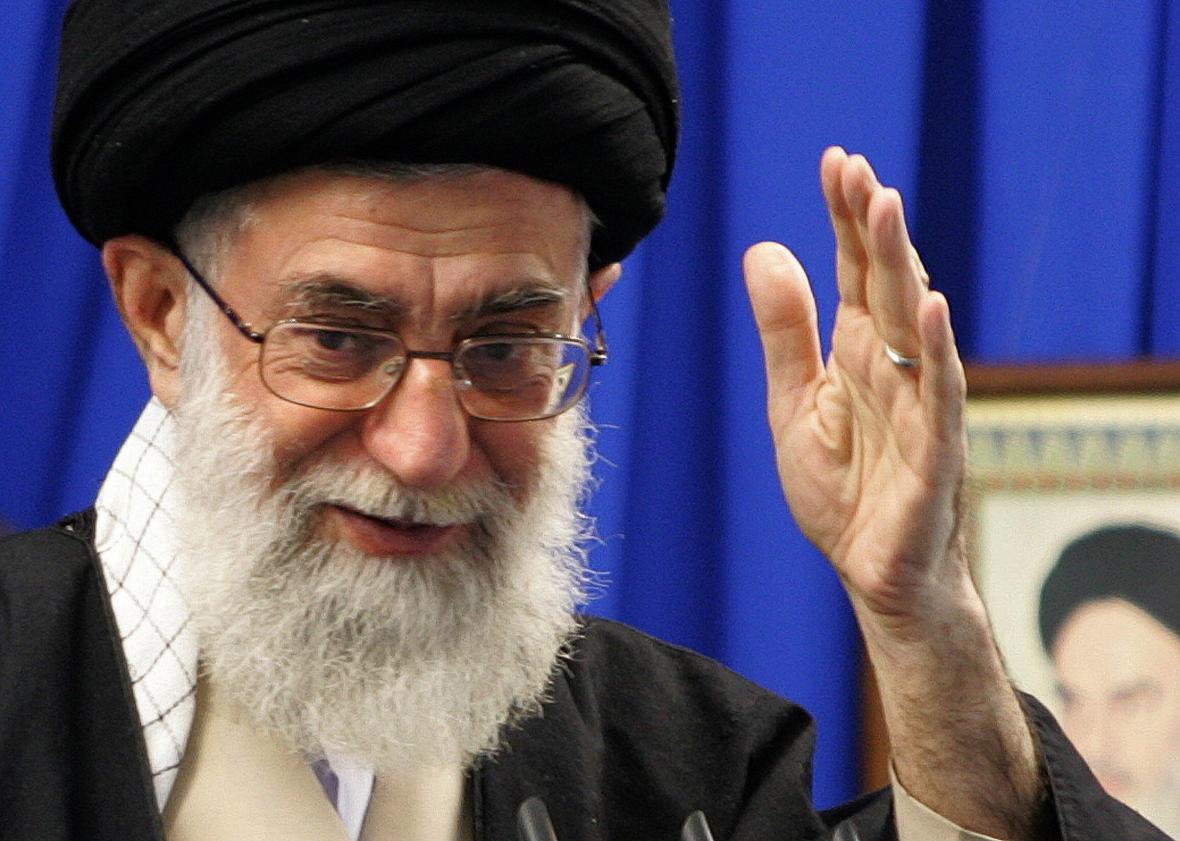In an explanation unlikely to assuage the concerns of many Americans, Iran’s Ayatollah Ali Khamenei clarified the meaning of the popular slogan “death to America” on Tuesday. “The aim of the slogan means death to U.S. policies and arrogance,” the supreme leader told a group of students of the phrase, widely chanted at rallies and at mosques after Friday prayers. Khamenei’s statement, which echoes past explanations by Iranian officials, also came a day after Iran’s Parliament overwhelming voted that, despite the recent diplomatic breakthrough with the United States, the slogan should continue to be promoted as “a symbol of the Islamic republic and all struggling nations.”
Some Iranian moderates have argued in the past that the slogan, which dates back to the revolution of 1979, is no longer useful, and most official documents translate the phrase, marg bar Amrika*, as the somewhat more polite “down with America.” But as now-jailed Washington Post reporter Jason Rezaian noted in 2013, the slogan “still forms a pillar of the Islamic Republic’s revolutionary values.”
Whatever the intent, “death to America” has certainly come to define Iran’s position in American political discourse. Opponents of the Iran nuclear deal frequently made the argument that, as Sen. Ted Cruz put it, the U.S. shouldn’t “grant nuclear capability to a nation that proudly chants ‘Death to America.’ ” President Obama, meanwhile, has argued that “just because Iranian hard-liners chant ‘death to America’ does not mean that that’s what all Iranians believe” and that those who do chant it were “making common cause with the Republican caucus” by opposing the deal. Last July, Rep. Ted Poe of Texas and Secretary of State John Kerry got into an argument during hearings over whether “death to America” should be interpreted literally.*
As for political discourse in Iran, there continues to be disgruntlement in Tehran over increased diplomatic engagement between Iran and the U.S. While Khamenei has prohibited further direct talks with the United States following the nuclear deal, which he only tepidly and belatedly endorsed, Iran is now participating in talks over Syria that include both the United States and regional rival Saudi Arabia. Iran and the U.S. are at odds over whether Syrian President Bashar al-Assad should remain in power and conservatives in Tehran have criticized President Hassan Rouhani and Foreign Minister Javad Zarif for agreeing to the talks, accusing them of “sell[ing] out the political future of Syria.”
While he hasn’t put a stop to the talks, Khamenei has said that it “doesn’t make sense that other countries get together and decide about a governing system and the head of that state” and reiterated his view that “the main reason for regional insecurity is the U.S. support for the Zionist regime and terrorist groups, and these policies are 180 degrees different from those of the Islamic Republic.”
Still, this level of engagement would have been hard to imagine just a year ago, and it’s not surprising that it’s making the “death to America” crowd very uneasy.
*Correction, Nov. 3, 2015: This post originally misstated that Rep. Ted Poe was a senator. It also misspelled the Farsi phrase “marg bar Amrika” as “mar bar Amrika” .
